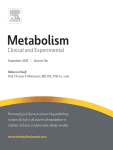Thank you so much mostly lurking. Yes, husband is taking thiamine. It should help with all this. Um, he was at 2500mg but found that his nighttime drool slowly increased. We tried a lower dose and no change. So, a few days ago, he started 3000. And, glory be, he reports improvement in drool.Thank you for this information. Both my husband and I have been taking some Sambrosa nighttime cold & flu med due to catching the Omicron Covid a couple of weeks ago. There's an antihistamine in it; Doxylamine Succinate. I'll warn him about it as it seems to be slightly addictive; I've had some trouble sleeping without it now.
Isn't your husband taking thiamine? If yes, thiamine is known to lower high brain serotonin.
and
Effect of thiamine deficiency on brain serotonin turnover - PubMed
Serotonin turnover has been investigated in regional brain areas of rats made thiamine deficient by pyrithiamine (PT). Following intracisternal injection of [14C]5-hydroxytryptamine ([14C]5-HT), a marked increase in the accumulation of [14C]5-hydroxyindoleacetic acid ([14C]5-HIAA) was found in...pubmed.ncbi.nlm.nih.gov
This second one explains that you need magnesium too. also this: "Serotonin in stomach and intestine increased in the excess-thiamine, magnesium-deficient group."
Effect of thiamine on serotonin levels in magnesium-deficient animals
To clarify the relationship between thiamine metabolism and peripheral vasodilation symptoms seen in the early stages of dietary magnesium deficiency,…www.sciencedirect.com
It would be nice if the patient would be willing to give a larger dose (1/4teas) of the progest-E a try for a few days (in the evening, before bed). Just a few days, to see if there's improvement.
I like the way you put that last paragraph. Could be a helpful way to put it. I did tell him people here thought he should take around 1/4 tsp, so he increased a little. I think the trial you suggest will appeal to him.
Well, I just tried it and he asked what we were trying to improve. I guess it was the drool, which improved with the thiamine dose increase. So. He did respond by saying no improvement is necessary because he is very good, as good as he can be. haha. Funny guy.
